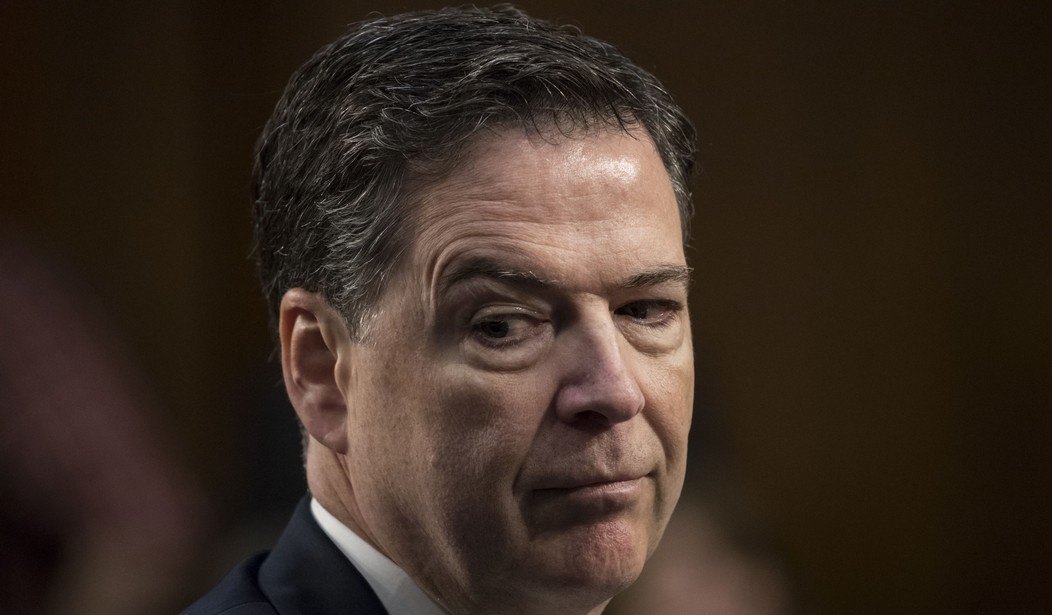NY Times columnist Bret Stephens wrote a column yesterday in which he reviewed for readers the history of the FBI’s actions during the Trump administration with regard to the Steele dossier. Stephens argues that if Igor Danchenko is convicted, it will be a real embarrassment for the media outlets who promoted the dossier. However he says that putting the media’s role aside, Danchenko’s indictment is an even bigger blow to the credibility of the FBI:
What this indictment further exposes is that James Comey’s F.B.I. became a Bureau of Dirty Tricks, mitigated only by its own incompetence — like a mash-up of Inspector Javert and Inspector Clouseau. Donald Trump’s best move as president (about which I was dead wrong at the time) may have been to fire him.
The Inspector General’s report on the FBI’s handling of the FISA process found “many basic and fundamental errors.” Stephens suggests this raised the question of whether the FBI was biased or incompetent. But he includes there’s evidence it was both. He points to FBI lawyer Kevin Clinesmith’s rewriting of an email to conceal the fact that Carter Page was working with the CIA:
And why would Clinesmith do that? It certainly helped the bureau renew its wiretap warrants on Page, and, as Clinesmith once put it in a text message to a colleague, “viva la resistance.” When the purpose of government service is to stop “the crazies” (one of Clinesmith’s descriptions of the elected administration) then the ends soon find a way of justifying the means.
When it comes to the Steele dossier itself, the FBI ran with a bogus and unreliable oppo-file put together by Trump’s political opponents. Comey in particular seems to have elevated the dossier’s status in a way that all but guaranteed the media, which had been given copies of it months earlier, would finally publish it.
Of such dross was spun years of high-level federal investigations, ponderous congressional hearings, pompous Adam Schiff soliloquies, and nonstop public furor. But none of that would likely have happened if the F.B.I. had treated the dossier as the garbage that it was, while stressing the ways in which Russia had sought to influence the election on Trump’s behalf, or the ways in which the Trump campaign (particularly through its onetime manager, Paul Manafort) was vulnerable to Russian blackmail.
Instead, Comey used it as a political weapon by privately briefing President-elect Trump about it, despite ample warnings about the dossier’s credibility. In doing so, Comey made the existence of the “salacious and unverified” dossier news in its own right.
Stephens concludes by saying that most conservatives reading his story will already know all of those details but he’s writing it for the progressives who may have missed it entirely. As if to prove his point, one of the most upvoted comments from readers is this one from a woman in Indiana:
Stephens writes more than once that “the Steele Dossier was Democratic Party-funded opposition research”. Yet I have read repeatedly that The Washington Free Beacon, a conservative Republican website, funded the work but decided it did not want the product when they jumped on the Trump bandwagon. The dossier then became available for later purchase by the Clinton campaign. Clinton chose not to use it, perhaps because it lacked proofs or perhaps because like the Obamas Hillary preferred to even against low Republican tactics take the high road. Personally (and this is just a hunch) I incline towards Hillary Clinton thinking she had the election sewed up so why stir things up. Since Stephens did not bother to read who originally funded the dossier, perhaps other assertions are equally false.
And if you scroll down a few more comments, you hear the same things from another reader in New York:
Ah Bret, so quick to point fingers the other way. Lest we forget, the Fusion GPS work was initially funded by the Washington Free Beacon, an ultra conservative website the Atlantic called “decadent and unethical.” It was funded by ultra conservative Republican donor Paul Singer, Manager of the Elliot Hedge Fund. Mr. Stephens may in fact know the founder of Fusion GPS as he also used to work at the WSJ. The Dems came to the party much later on.
This is of course, completely false. Yes, the Free Beacon did fund oppo-research into Trump but it was only after Perkins Coie took over the funding of the research that Christopher Steele was hired. Simply put, not one word of the Steele dossier was funded by anyone other than Team Clinton and the Democratic National Committee.
But it’s not surprising that several hundred readers of Stephens’ piece still believe this lie because when the news first broke (about Clinton funding the dossier), this claim was repeated by many people on the left as if it were true. The Associated Press even ran a correction about it back in 2018:
In a story Feb. 2 about a Republican memo on the Russia investigation, The Associated Press erroneously reported that a former British spy’s work on an opposition research project was initially funded by the conservative Washington Free Beacon. Though the former spy, Christopher Steele, was hired by a firm that was initially funded by the Washington Free Beacon, he did not begin work on the project until after Democratic groups had begun funding it.
The fact that this lie is still being trotted out years later by smug NY Times‘ readers who don’t know any better proves that Stephens is right. On this topic, conservative readers are far more likely to know the story than those on the left.








Join the conversation as a VIP Member